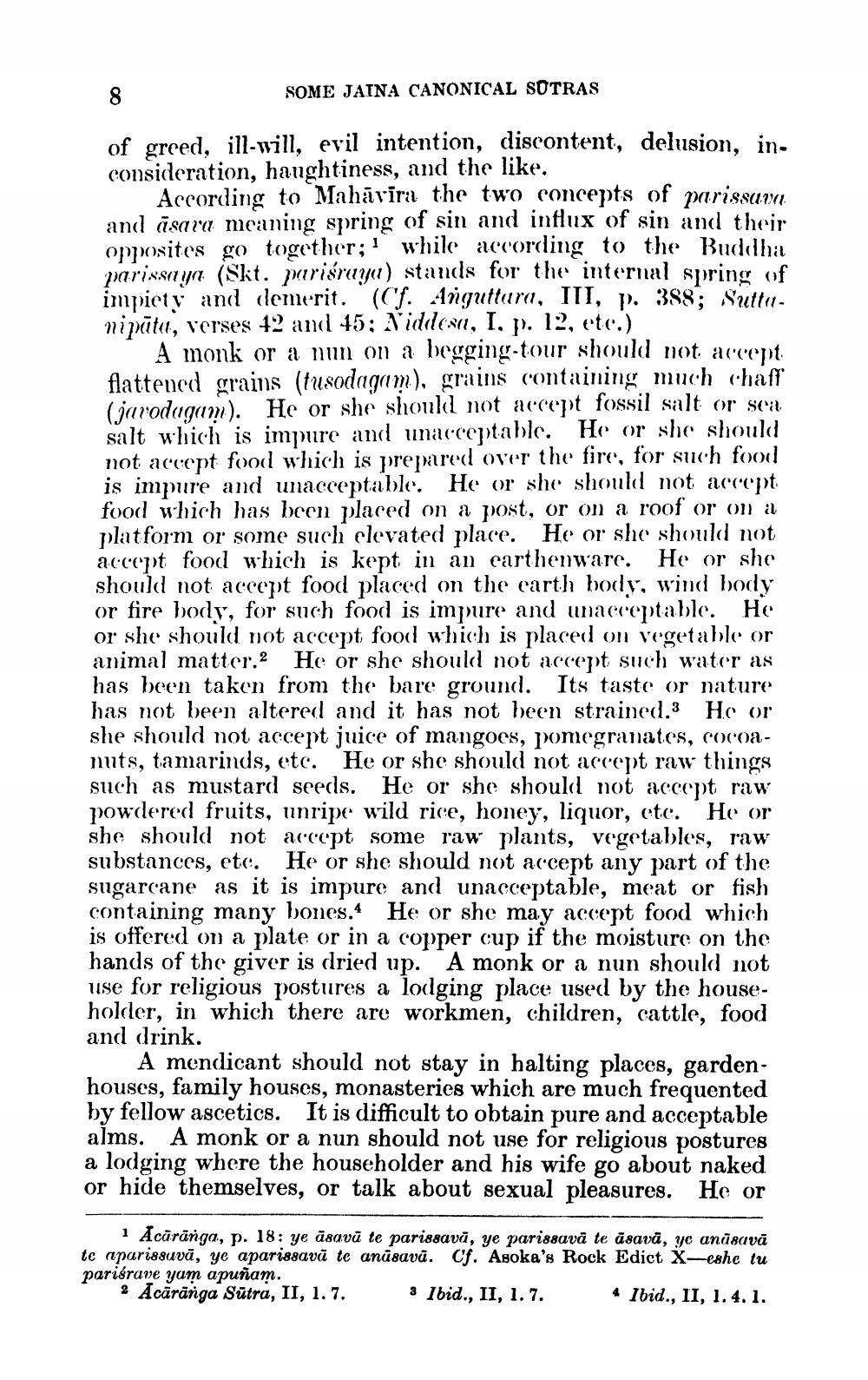________________
SOME JAINA CANONICAL SOTRAS
of greed, ill-will, evil intention, discontent, delusion, in consideration, haughtiness, and the like.
According to Mahāvīra the two concepts of parissuu and disara meaning spring of sin and intlux of sin and their opposites go together;' while according to the Buddha parissur (Skt. parióruyu) stands for the internal spring of impiety and demerit. (Cf. Anguttura, III, p. 388; Suttanipūtu, verses 42 and 45; Pidulesa, I, p. 12, etc.)
A monk or a nun on a begging-tour should not accept flattened grains (tusodagam), grains containing much chaff (jarodagam). He or she should not accept fossil salt or sea salt which is impure and unacceptable. He or she should not accept food which is prepared over the fire, for such food is impure and unacceptable. He or she should not accept food which has been placed on a post, or on a roof or on a platform or some such elevated place. He or she should not accept food which is kept in an earthenware. He or she should not accept food placed on the earth body, wind body or fire body, for such food is impure and unacceptable. He or she should not accept food which is placed on vegetable or animal matter. He or she should not accept such water as has been taken from the bare ground. Its taste or nature has not been altered and it has not been strained. He or she should not accept juice of mangoes, pomegranates, cocoamuts, tamarinds, etc. He or she should not accept raw things such as mustard seeds. He or she should not accept raw powdered fruits, unripe wild rice, honey, liquor, etc. He or she should not accept some raw plants, vegetables, raw substances, etc. He or she should not accept any part of the sugarcane as it is impure and unacceptable, meat or fish containing many bones. He or she may accept food which is offered on a plate or in a copper cup if the moisture on the hands of the giver is dried up. A monk or a nun should not use for religious postures a lodging place used by the householder, in which there are workmen, children, cattle, food and drink.
A mendicant should not stay in halting places, gardenhouses, family houses, monasteries which are much frequented by fellow ascetics. It is difficult to obtain pure and acceptable alms. A monk or a nun should not use for religious postures a lodging where the householder and his wife go about naked or hide themselves, or talk about sexual pleasures. He or
1 Acārānga, p. 18: ye āsavā te parissavā, ye parissavā te āsavā, ye anāsavā te aparissuvā, ye aparissavā te anāsavā. Cf. Asoka's Rock Edict X-eshe tu pariórave yam apuñam.
2 Acāränga Sūtra, II, 1.7. 3 Ibid., II, 1.7. 4 Ibid., II, 1. 4. 1.




